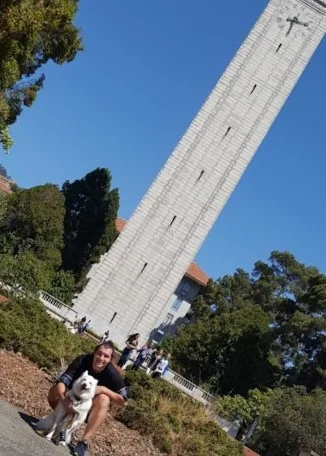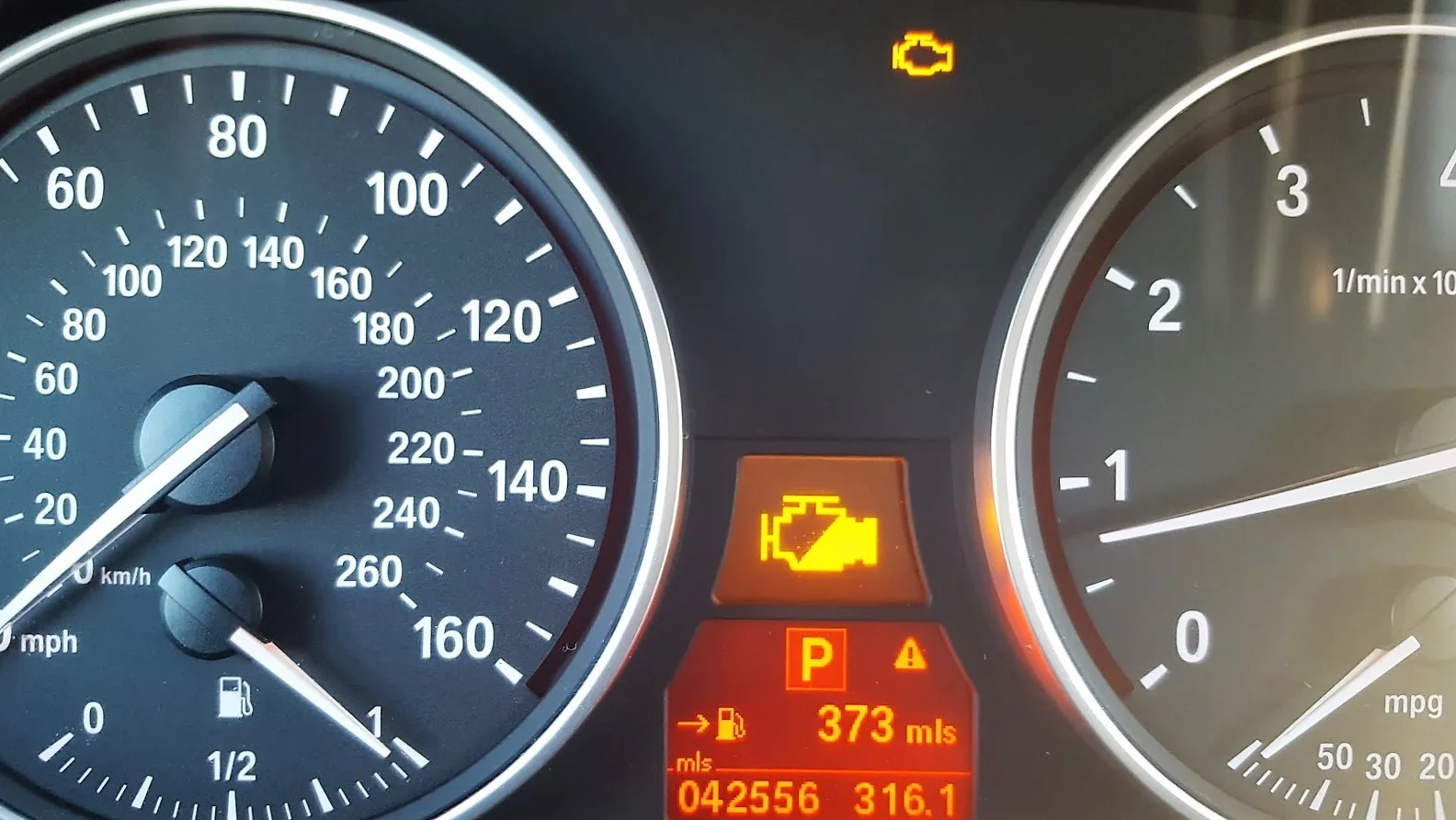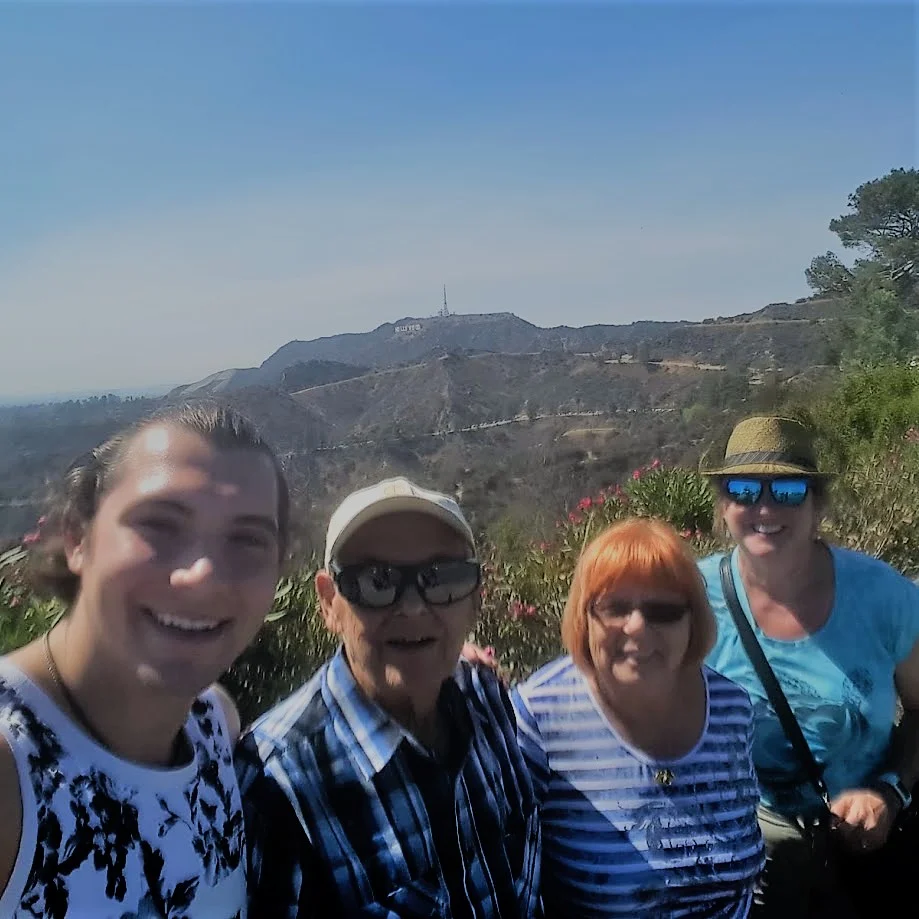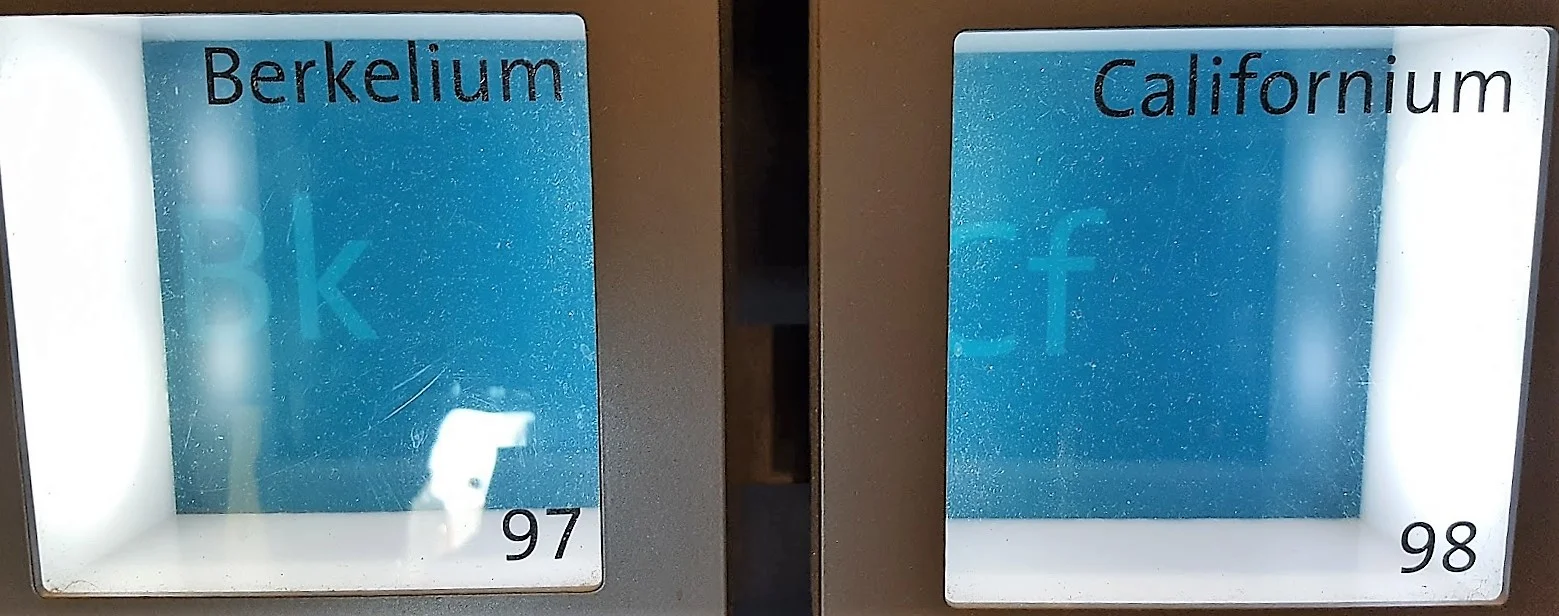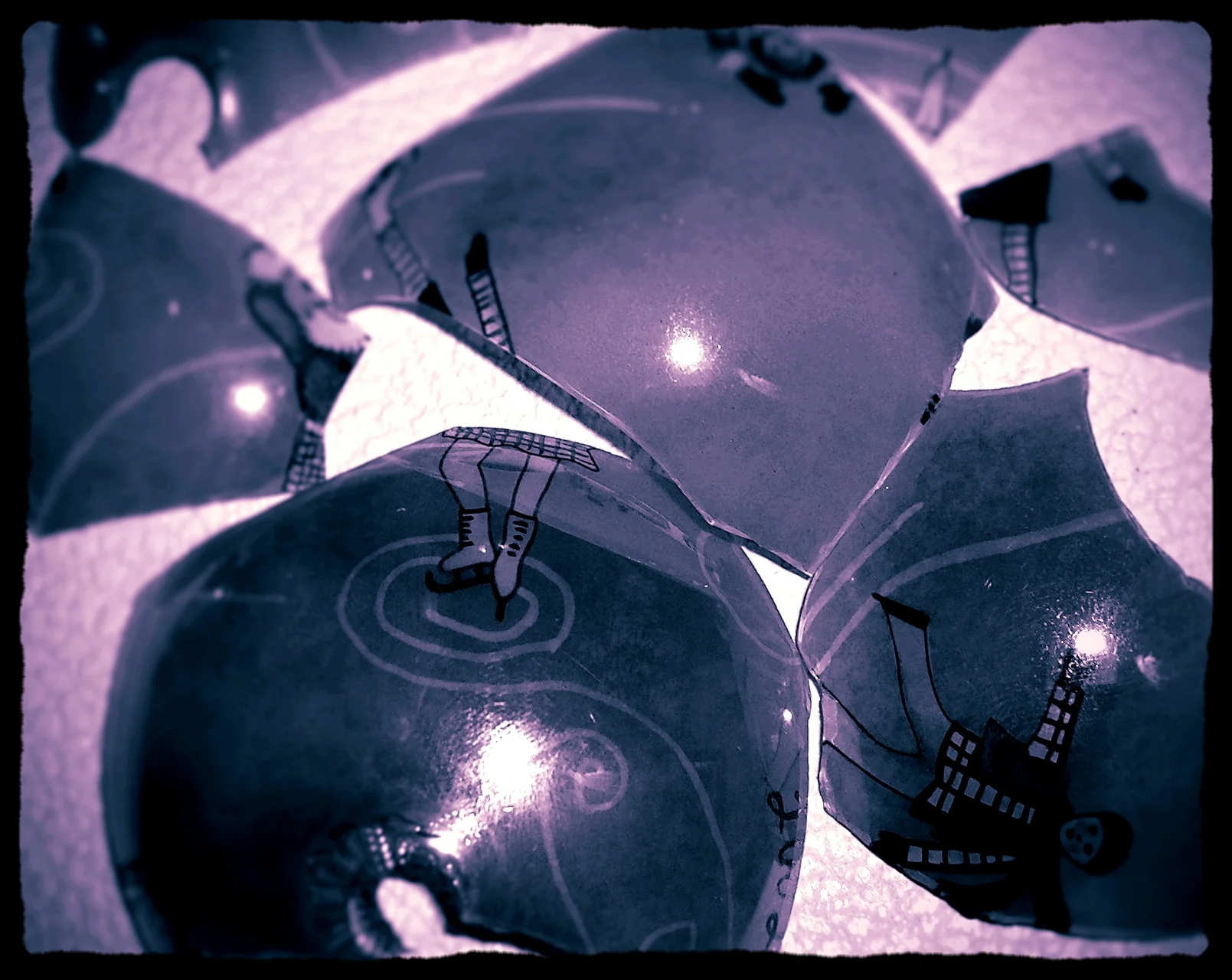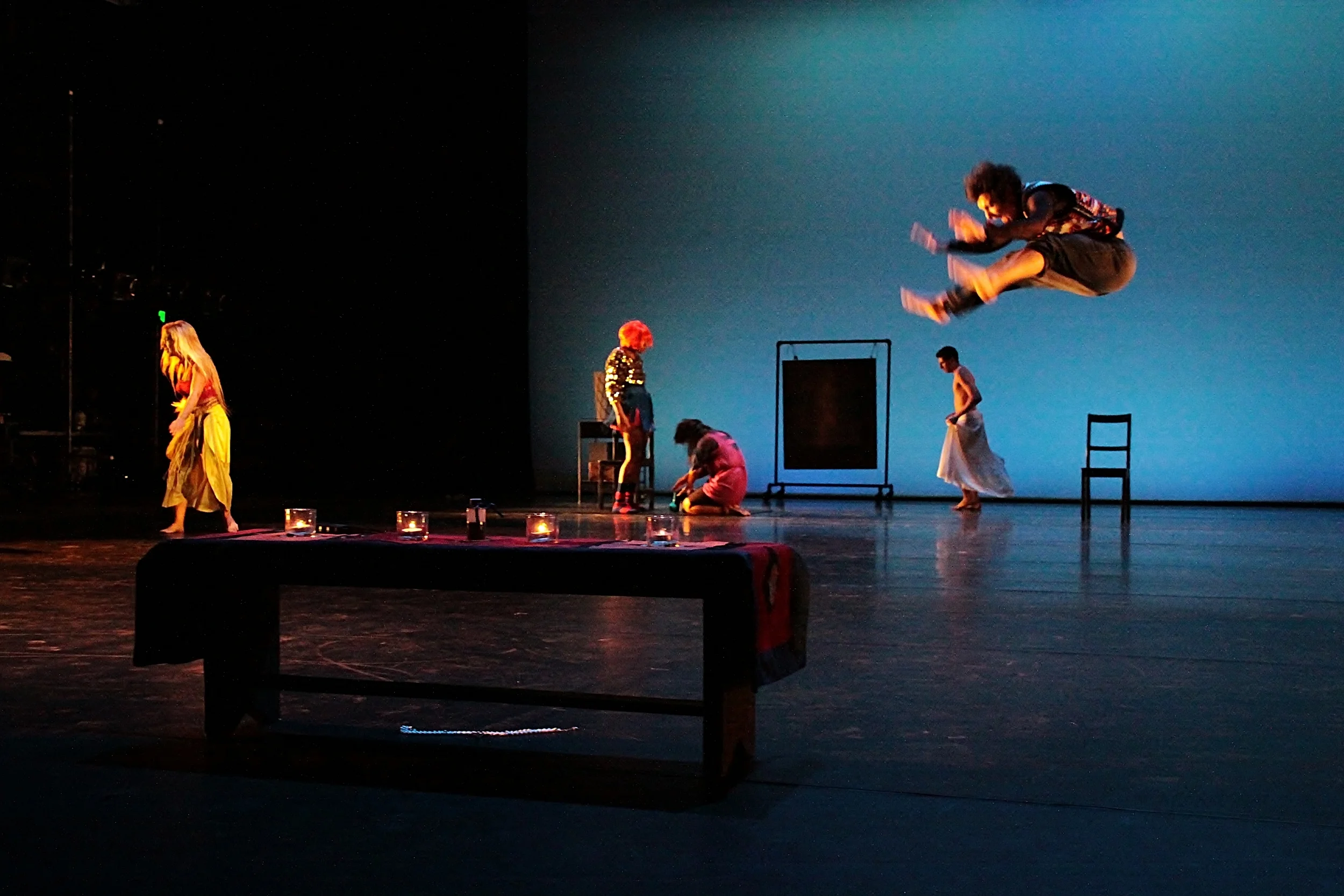Between Satan & Beelzebub, It Is Sometimes Worth Choosing
Transcribing and translating the interviews for Baba Babee Skazala was fascinating in many ways. I was impressed by the courage, stamina and cheerfulness of the Ukrainian refugees, and the good humor they brought to their harrowing and heart-rending stories. I was impressed, also, by the deep pride they exhibited in their Ukrainian heritage, and their fluent command of our language. But perhaps the most striking part about these stories was the interviewees’ decision to leave the Soviet Union and settle (if only impermanently) in Nazi Germany...
Мій перший вірш написаний в окопі,
на тій сипкій од вибухів стіні,
коли згубило зорі в гороскопі
моє дитинство, вбите на війні.
Ліна Костенко
My first poem was written in a trench
upon that wall crumbling from explosions
when the stars in the horoscope were killed
by my childhood, executed in the war.
Lina Kostenko
Transcribing and translating the interviews for Baba Babee Skazala was fascinating in many ways. I was impressed by the courage, stamina and cheerfulness of the Ukrainian refugees, and the good humor they brought to their harrowing and heart-rending stories. I was impressed, also, by the deep pride they exhibited in their Ukrainian heritage, and their fluent command of our language. But perhaps the most striking part about these stories was the interviewees’ decision to leave the Soviet Union and settle (if only impermanently) in Nazi Germany...
From what I know of Ukrainian history, I certainly expected to find this kind of unanimous resentment towards the Soviets; yet I did not expect Nazi Germany to be a more favorable alternative. Having experienced both the Soviet regime from 1939 to 1941, and the Nazi occupation from then onwards, many of these Ukrainian immigrants willingly chose to live in Nazi Germany – which says a lot about the Soviet Union.
For instance, Ivanna M. took a three-month-long journey from Ukraine to Czechoslovakia by train, one which had no beds or bathrooms. She subsequently endured two labor camps, one of which was Strasshof, where the food “was impossible to eat.” The Nazis also sent her to work in Germany as an “ostarbeiter.” But even having endured those aspects of the Nazi occupation, she still made the decision to settle in Germany when the Soviet army pushed back against the Nazis in 1943. When she tried to leave Czechoslovakia to go west, the Soviets arrested her at the border and took away all her belongings, but let her go. And she made the decision to go to Germany – barefoot and empty-handed.
Another fascinating case, Sophia W. left her sick 2-year-old child behind in the Soviet Union when escaping to Germany, whom her father-in-law would care for while she fled. Dmytro F. went to school under the Nazis, determined to complete his education, though he had endured multiple hardships and humiliations: he was sent to punitive camps (“straf-lager”s) & forced to pick up small rocks under railway tracks, among other things.
Ukrainian Ostarbeiters Getting on a Train from Kyiv to Germany (PC: InfoUkes)
The interviewees explain their rationale for fleeing the USSR. Born in Western Ukraine, they all experienced the Soviet occupation of 1939, and the reoccupation of the territory by the Red Army in 1943. Orysya S.’s father constructed a factory only to see it expropriated by the Soviets, then by the Nazis. Her brother was arrested twice by the Soviets on charges of nationalist activity. Similarly, Ivanna M. spoke through tears about her sister who was executed by the Soviets for participating in the OUN (Organization of Ukrainian Nationalists). Dmytro F.’s family of farmers had their land taken away by the Soviets.
Joint German-Soviet Military Parade in Brest, Poland, 1939 (PC: Bundesarchiv)
Timothy Snyder’s book Bloodlands captures this unenviable fate of those trapped in between the front lines of the world’s deadliest war, having to choose between Satan and Beelzebub. In this spirit, interviewee Volodymyr H. clearly sees the Soviet Army as a land-hungry aggressor when explaining his reason for going west: “I was afraid that because Russian army was just very aggressive and I was afraid that they will invade all Europe and they will grab England, everything, so I said, as far as I can go, so it is America.” The Red Army is clearly not a liberator, but just as imperialistic as Hitler’s forces.
These stories are more than relevant today, and not just in the context of the refugee crisis. In many parts of Ukraine, Soviet propaganda still clouds people’s perception of the history of World War Two. I grew up in Kharkiv, a city where many people still see the history of the Soviet Union favorably. Until recently, before the decommunization campaign, I could walk along Lenin prospect and Dzerzhinsky street and see Lenin’s monument in Kharkiv’s central square. Unlike my parents, however, I was taught in Ukrainian history classes about the horrors of Stalin’s repression of the intelligentsia, the secret protocol to the Nazi-Soviet non-aggression pact that annexed Western Ukraine to Russia, the Holodomor famine, etc. To many people in the United States who were raised to hate the Soviet Union and everything it stands for, these stories will seem unsurprising. Yet, for modern-day Ukraine, they shed light on some important topics that have long been obscured by Soviet propaganda. Especially today, when Ukraine is suffering from Russian information warfare, the need for oral history of this kind is especially welcome and dire.
Even the Americans' Allied soldiers back in 1945 did not fully understand the oppressive nature of the Soviet state. They were surprised to see, when the Soviets started taking people back home, that the Ukrainians resisted. “There were even cases when they jumped from windows to kills themselves because they did not want to go to Russia, because nothing good awaited them there. Then the Americans started wondering what was going on, why those people were afraid of going back to Russia. Poles went back to Poland, Italians to their country, but Ukrainians did not want to go anywhere, nor did the Lithuanians or the Estonians; they were afraid of coming back. Then the Americans realized who those people were, why they did not want to go back to Russia. They were afraid of being taken to Siberia – even those people who said: “I am going home, they are taking us home” – they were not really taking them home. They took them to Siberia and took away all their possessions.” (Baba Babee Skazala Interviewee)
Timothy Snyder’s book created the image of two evils, Nazi Germany and the Soviet Union, and raised some ethically difficult - and almost unanswerable questions - about comparing them. Yet people caught in between the fronts did face the real, tangible choice of where to live. And the fact that there were many who chose Nazi Germany makes us want to dig deeper into their pasts and tell their stories, especially to those in Ukraine and Russia who have been barred so long from the truth.
California, Heart & Home
Projects like Baba Babee Skazala are often as much about self-discovery as they are about discovering others’ stories. Preparing to do oral history interviews in Los Angeles really brought that point “home” in many ways. Leaving UC Berkeley, California & driving to LA - start of the cross-country road trip.
Driving from Berkeley to Los Angeles to Film Oral History Interviews
…My thoughts are scattered and they're cloudy,
They have no borders, no boundaries
They echo and they swell
From Tolstoy to Tinker Bell
Down from Berkeley to Carmel
Got some pictures in my pocket and a lot of time to kill…
~from Cloudy, Gorrie & Stuart; recorded by Simon & Garfunkel
Cloudy by Simon & Garfunkel
Thoughts of leaving Berkeley, California while traveling to Los Angeles to film for this oral history project
Projects like Baba Babee Skazala are often as much about self-discovery as they are about discovering others’ stories. Preparing to do interviews in Los Angeles really brought that point “home” in many ways.
After spending much of the past four years in the same apartment in downtown Berkeley, it was time for me to leave UC Berkeley and, as it seemed then, California. Of all the times I had traveled from East to West Coast during these years, this trip would be the first cross-country drive. So many memories, so many plans, so much uncertainty, and miles of highway to ponder it all. But, because of Baba Babee Skazala, the first leg of the trip would be driving to Los Angeles, rather than a straight shot East from the Bay Area.
My dog, Glacier, and I saying farewell to the Campanile, UC Berkeley.
We planned to drive the iconic California Highway 1 to savor every moment left of my time in California, but the fire gods did not cooperate with this plan. As we were to leave – the Soberanes Fire (one that could be seen from space last year) closed the highway near Big Sur and the campground we had planned to enjoy en route to LA.
View of Soberanes Fire, California from space, August 2016. The resulting road closure detoured our road trip to Los Angeles for oral history interviews.
Wanting to avoid Interstate 5, we took the 101. There, we encountered our own view of the Soberanes Fire and car troubles.
No, that is not cloud cover - it is haze from the Soberanes Wildfire, as seen on our drive from Berkeley to Los Angeles on Highway 101
It is never a good sign when your car indicators light up and you have to check the owner’s manual to see what the problem is! Here: engine malfunction; slowly proceed to the nearest service location. Um, great, just great!
Still, we made it to LA, took the car in for repairs and got a loaner so we could get on with our work. Once settled in, we were thrilled to work with Evan Yee again and some of his friends. A few extra hands and cameras never hurt!
In addition to interviewing some awesome people, we also were able to witness and record a festival at the Ukrainian Cultural Center and see one of our interviewees’ Ukrainian shop located on the second floor of the Cultural Center. What a sight to see – artwork in many different mediums from all the different regions of Ukraine, and even modern art with Ukrainian style and references. Such a meaningful space maintained over 20 years by one of our interviewees. Clearly, art is a meaningful way for her to cherish, preserve and share her culture.
Be sure to check it out if you’re in the area and on Facebook!
We even did some sightseeing with our new friends.
Here we are, fitting ourselves into one selfie with the HOLLYWOOD sign in the background.
And, here is my personal reminder from the Griffith Observatory that Berkeley will always be a part of me. GO BEARS!
The fantastic part about this trip was that everything was so inspiring, encouraging and exciting that we forgot that we were in LA traffic half the time!
Be sure to join our community and follow Baba Babee Skazala to learn more about the arts of Ukraine and the Ukrainian culture! Pysanky are amazing but there is SO much more to Ukrainian art!
From here, we head back to Denver, then to Cleveland, then New York.
As for California… well…“you can check out any time you like, but you can never leave.” 😊
On the Road in the Mile High City - Oral History Interviews in Denver
Our First Round of Interviews in Denver, CO
Subtitled:
Wherein, I am reminded to
"Go West, Young Man!"
(I leave the dispute as to the attribution of this quote to Horace Greeley or John B.L. Soule to others.)
It has been awhile since Kitsune’s first venture to Denver, Colorado for our initial round of interviews, but it’s still fresh in our heads. We greatly appreciated the hospitality of our special soon-to-be interviewee, Pani Maria Figlus and her son Ihor Figlus. Not only did they make us feel right at home, but they helped coordinate our contacts with potential interviewees in the Denver area, which really streamlined our work. The first interview really hit our hearts and immediately told us that we were going to hear some really intricate stories while we were in Colorado.
We met many wonderful individuals: everyone had a story that was absolutely memorable, so be sure to check them out in our film! Each one remembered and visualized differently which reminds us how each story is like a jigsaw piece in the larger history puzzle, and all are crucial to our understanding of that history.
It was a blessing to meet and enjoy lunch with our interviewees - they were all very welcoming and excited to speak with us. We had a great trip to Denver, and this trip also opened the door to a return trip as our vision of the film develops. There is still so much to learn from these individuals, and we look forward to returning to hear more memorable stories and enjoy the sunny Denver climate!
As I mentioned in the Florida Interviews Blog Post, please don't limit yourself to "Baba Babee Skazala" for the stories of this amazing group of people. I encourage you to read and listen to the stories others have recorded, including some of our interviewees. Get a copy of:
Savage, Ania, "Return to Ukraine," Texas A&M University Press, TX: 2000.
The First Big Push - Orthodox Easter & Oral History Interviews in Florida
We arrived in Ft. Meyers, Florida mid-day on a Thursday afternoon. Nothing special. Or was it special?
We arrived in Ft. Meyers, Florida mid-day on a Thursday afternoon. Nothing special. Or was it special?
After exiting the airport in a theatrical process of events (the usual "hurry up and wait" routine with luggage with the added burden of camera equipment), “it” came almost as expected: sudden…but lacking character. "It" was the Florida Heat: exponential as always, but for some odd reason the usual Florida humidity was lacking its threatening personality. I hate Florida humidity – the way it creates heat waves that jar the skin as if magma were a viscous substance within Florida air instead of under the Earth’s mantle. That trait was lacking this trip. Maybe this trip wouldn’t be so bad after all.
As we gathered our belongings and progressed to packing them into our white rental vehicle, we started our venture to Babcia's house …around the corner of the airport's perimeter and a straight shot onward to North Port, Florida. This is where our business was, the Ukrainian community awaited our arrival as Ukrainian Easter started to crest above the weekly horizon on the calendar. What else is there to do during a drive as a backseat passenger but to gradually open and close your eyes in a slowing melodic manner that eventually would lead to heavy eyes and darkness.
I don't awaken until we arrive at Babcia’s house, our home for the next week. There is so much preparation for the Easter holidays and week of work. I’m here to document the oral histories of the Ukrainian Diaspora that live in the Ukrainian community here in North Port. It’s seems like a daunting mission. I’ve never met half of these individuals, and who knows if they will spare any interest in me, my questions, or my project, to say the least. With whatever doubts I may have, I must set them aside for the benefit of the project and its hopeful success, as I’m confident that these elders will be interested in telling me their stories in the end. Pushing aside my doubts, I prepare for the morning's filming of Mass at the Ukrainian church. This will likely be the point where many in the community witness me for the first time and start questioning why a camera is recording their religious rituals. Of course, there is no point in worrying about that at this point, it’s time for some rest after dinner.
Friday morning comes a little too slowly. I wake up before my alarm and everyone else. This might be a good time to go for a little run and just sweat out any stress building within my body for the day to come. I don’t understand though where the Florida humidity is hiding. Not once have I been to this state and failed to experience the torrential downpour of sweat exuding from the expanded pores of my body thanks to that monstrous humidity. This was a nice morning, balmy with a cool breeze, and thus, a nice run.
Without spoiling the rest of the week’s efforts in shooting video (you should watch the film), every interview ended with something special. Although there was some initial hesitation in some elder’s eyes about having their stories filmed or wondering whether anyone would even care about their stories, many took very well to the concept of "Baba Babee Skazala", encouraging me to push forward and create something that their children and grandchildren could appreciate. Over glasses of cognac, wonderful lunches, and too much food in general, these amazing people welcomed me into their homes with sincere hearts and teary eyes, and shared their desire for this project to come to a larger fruition than I thought possible.
As I sit in a P.F Changs on the second floor of the Ft. Meyers airport writing this blog post, I contemplate my initial feelings of the project and this large step in its progression to reality. I wasn’t all gung-ho, rather quite the opposite. I had uncertainties about how the project would be received and thus, wondered whether I should continue to push so hard for its existence or whether I should drop the project and save everyone the time and hassle. In the end, these many interviews and individual stories have expressed more than one would imagine and these people have so much to offer all of us if we just take the time to listen. I’ve come to realize that this project has a much greater, deeper meaning than I thought. So much so that I nearly forgot how much I despise the Florida Heat & Humidity!
Please stay tuned as there will be more to come. More wonderful Ukrainian lunches that I would love to share with you all as I fill up on too much bread and morning cognac! :)
Please don't limit yourself to "Baba Babee Skazala" for the stories of this amazing group of people. I encourage you to read and listen to the stories others have recorded, including some of our interviewees. Get copies of:
Guran, Bohdan, Lechman, Bohdan et seq., "Flight to Freedom: Biographies of Five Families," pub. with the assistance of Babiuk, Dr. Myron: 2015.
Support from Unexpected Places
SUBTITLED:
"YOU CAN'T ALWAYS GET WHAT YOU WANT BUT IF YOU TRY SOMETIME YOU FIND
YOU GET WHAT YOU NEED"
Subtitled:
"You can't always get what you want
But if you try sometime you find
You Get What You Need"
~Rolling Stones
As I hinted in my earlier posts, the first attempt to get this project off the ground was linked to the culmination of my undergraduate education at UC Berkeley. Berkeley has a wonderful program, that I recommend to those with a unique, creative project in mind that is intended to build on their Cal education and have a meaningful impact on society. That program, the "Judith Lee Stronach Baccalaureate Prize supports intellectual and creative pursuits that heighten awareness of issues of social consciousness and contribute to the public good. The award gives motivated students the opportunity to extend and reflect upon their undergraduate work at Berkeley by undertaking a special project after their graduation." To me, this program seemed a perfect fit for "Baba Babee Skazala" and for my post-graduation plans. Unfortunately, those making the selection apparently did not agree with me. I did get feedback that the idea was good and that there might be other funding sources out there to get this project off the ground.
At the time I received this disappointing news, I was trying to finish my senior thesis and other final projects and had just been diagnosed with mononucleosis. It was not turning out to be the graduation experience I had been dreaming of! I set "Baba Babee Skazala" aside, focused on what had to be done and tried to recover my strength and stamina in the following months so that I would not lose another skating season to illness and injury.
Still, if I have learned one thing from my years as a UC Berkeley student and as a figure skater, it is to "keep on keeping on." There are plenty of people who will say NO to your dreams, who will tell you that you are not good enough, criticize your efforts and misconstrue your goals; rejections will exceed acceptances. UC Berkeley is not a place known for being full of "warm fuzzies." But, if you keep moving forward and learn from the criticism, pieces will fall into place. Let's be clear - I am not saying that if you work hard, you will have the Olympic dream. In fact, I don't believe that - lots of people work extremely hard toward a goal, give it their all, and do not reach that goal. I do believe those people gain other opportunities and grow from having made that effort. So, while I am a bit young to quote the Rolling Stones, it seems to fit the bill. Give it a listen! :)
During the stormy hurricane season of my Fall 2015 in Florida (see the blog post, "Unhomed & Un-moored"), I came across the Ella Lyman Cabot Trust. The Trust has a purpose to "sponsor persons with projects," and its founder - apparently following a triage approach from his medical training - chose to focus on a "small middle group - a group where a timely word, and unadvertised and prompt material assistance, might make all the difference between success and failure. Richard and Ella Cabot were willing; indeed, to gamble almost recklessly on the creative powers of human personality if there was even a slight chance of tipping the balance in favor of real and significant achievement."
I did not have high hopes, but applied for a grant, and am thrilled to say that I was approved for a grant from the Ella Lyman Cabot Trust in late 2015. I am honored that the Board believed "Baba Babee Skazala" and I were worthy of support, and as I re-read the words quoted above while writing this post, realize that this support truly did come at a critical time. Without it, I am not sure "Baba Babee Skazala" would have ever become more than a proposal on a few pieces of paper. With it, "Baba Babee Skazala" has become "real" - filming interviews and getting other organizations and individuals involved, growing the project beyond my expectations.
There are so many to thank for their support and participation in this project, but this is my heartfelt "Thank You" to the Ella Lyman Cabot Trust for being there at the right time and giving what was needed!
A little classic rock to go with the blog ;)
"Un-homed" & Unmoored
Subtitled: The Year of Living Chaotically
Do not go where the path may lead,
go instead where there is no path
and leave a trail.
~Ralph Waldo Emerson
Subtitled:
The Year of Living Chaotically
Do not go where the path may lead,
go instead where there is no path
and leave a trail.
~Ralph Waldo Emerson
This quote has been among my sources of inspiration for years because it shone a light on my non-traditional educational path and my specific athletic goals. I knew who I was and where I was going:
I am - or I was - a figure skater, a dancer, a college student. Now, perhaps, I am none of these.
But, in the year of my graduation from UC Berkeley, in a skating season bookmarked by a serious case of mononucleosis that wouldn't quit and a shoulder injury that I prefer not to dwell on here, interlaced with too many other injuries and problems to count, the absence of a well-trodden path took on a new meaning. There was no longer a path. The ice had melted under my feet and I was submerged in a roiling, stormy sea. Since I only knew how to skate on frozen water, and had not learned to walk on liquid water, it was proving difficult to leave a trail.
In retrospect, the physical moves of that year also seem fraught with metaphorical meanings. My skating partner was from Ukraine and struggled with adjustments to life in America that I imagine many immigrants, Ukrainian and others, understand. We moved many times. With each move, my belongings were condensed into fewer boxes and our housing became more temporary. My support system was challenged, as some that I had trusted imposed their own demands and goals on an already difficult situation. I stored my clean clothes in one cardboard box and dirty clothes in another, or maybe it was all mixed together; I lost things along the way. In short, pretty much everything came unhinged, like "Un-Homed" from another Cal course. (The meaning-filled cardboard boxes are here.)
Directors' Note: Un-Homed is, in every sense of the word, a collaborative project and an experiment in what is possible when four directors and nine performers come together for twelve weeks to share in a process.
To abuse a line from "Game of Thrones," "The [Boy] is No One." Or, is he?
Throughout the year, bits of the nascent project that is now "Baba Babee Skazala" kept surfacing, not so much like a life boat on that stormy sea, but more like flotsam or jetsam, bobbing to the surface after the shipwreck, hinting that hanging onto it might lead to a shore and that, having birthed this project as a proposed culmination of my undergraduate experience at UC Berkeley, this "opportunity to extend and reflect upon [my] undergraduate work," would not be silenced, even without that award. (I'll tell you more about how this project connected to my time at Cal in a later post.)
As one of the figure skating coaches I most respect told my father when first coaching me, "the fog is lifting and I can see the shore." When I reach the shore, I will create a new trail, and I am excited that "Baba Babee Skazala" is part of the journey.
"Turangawaewae" - Standing Place
"Baba Babee Skazala" may have had its genesis when I was born (more on that in a later blog post), but I think it was really birthed as I came of age. Two and a half years ago, at the University of California, Berkeley, I auditioned for and enrolled in Berkeley Dance Project 2014. I could only dance in one piece because of my skating schedule - the piece was "Turangawaewae," choreographed by Jack Gray. This was perhaps providential.
Subtitled:
Where I Began to Consider My Ukrainian Ancestry in New Ways
photo credits for Turangawaewae pictures: unknown, believed to be Yvonne Portra.
"Baba Babee Skazala" may have had its genesis when I was born (more on that in a later blog post), but I think it was really birthed as I came of age. Two and a half years ago, at the University of California, Berkeley, I auditioned for and enrolled in Berkeley Dance Project 2014. I could only dance in one piece because of my skating schedule - the piece was "Turangawaewae," choreographed by Jack Gray. This was perhaps providential.
I cannot improve upon the class description for this piece, nor the process that led to it, so I will provide that description here, with attribution:
"Turangawaewae is the Maori word for Standing Place. It is a cultural concept of belonging and power. It means literally that your genealogy affiliates somewhere that connects you to the land where your ancestors lived, breathed, fought, loved, ate, hunted, dreamt and placed their stories of triumph and failure into the mountains, rivers and ocean. Even though we now find ourselves in the new generations of mixed descent, being raised away from where our blood and DNA comes from – the concept of Standing Place is important. It means that regardless of these things you have a right. The human right to belong to land. Not the land that you have bought from the Bank. But the Mother. The Earth. The country and nation that keeps your secrets and lineage close to her heart. Through blood and tears, oceans and desert, mountains to plains. The beauty of our earth is that we see the rise and lowering of the sun every day. The enlightenment of the moon and the passage way of the stars and galaxies that helped our ancestors navigate their futures across continents.
In 2014 we will dance this dance for us. The sacred ceremony of our peoples upon a land so distressed by the forgotten memory of the ancestors who once took care of it. We met each other, face to face, breath to breath and shared our stories. Shared the few words we knew of our languages, now decimated by English. We learnt to move our expression and we learnt to be together. Sharing times of intimacy. What lifts us, what lifts each other – we will discover and we will put our hearts and minds towards. The changing times and dimensions are here and we acknowledge this all through the honesty and truth of our REAL selves and our DANCE.
Mauriora tatou katoa – Life force to you all."
At first blush, one might wonder what a Maori concept has to do with Ukraine or being Ukrainian, but this description of Turangawaewae will, I think, resonate with many Ukrainians and the diaspora and refugees of many other peoples.
We were asked to contribute to the blog for the course. EuroMaidan was gripping my attention. Russia invaded Crimea. I started thinking. My blog entries are quoted here:
"I started thinking...where is my Standing Place?"
I am Ukraine
Berkeley is Russia.
СЛАВА УКРАЇНІ!
ГЕРОЯАМ СЛАВА!
Matej's Spring Break - Welcome Back All (you will have to visit this link to see me during one of my first trips to Ukraine, about age 3, and dancing at Soyuzivka, about age 7 :) )
"As spring break comes to a close, I wanted to share with everyone how amazing my break was. Unfortunately, I do not have any pictures, but I have my stories. I cannot wait to share these stories with all of you in person soon.
I wanted to share a little more about my family and where we come from – as well as my upbringing as a youngster. My interest in learning more of my family and ancestors has grown substantially with the influence of this dance project and Jack Gray’s insight, but also because of the recent events that have been happening in Ukraine. As some of you know already, I consider myself Ukrainian. My father’s side of the family is the Ukrainian side. His family is part of the diaspora, forced to flee their home during World War 2. The country’s history is one of struggle for national identity, as the name even means “borderlands,” and the land has been fought over for centuries. Through it all, Ukrainians have maintained a sense of identity that has not been extinguished – even through the “Holodomor,” the forced famine created by Stalin that killed millions of Ukrainians. Today, Ukrainians are again fighting for their country, as seen in the news.
In dedication to these current events, a friend and I did a little video for a video contest that was dedicated to those in Ukraine from us ->
[By the way, readers, that friend was Evan Yee, a childhood friend from Verona, NJ, cinematographer extraordinaire & collaborator on "Baba Babee Skazala"!]
It’s somewhat funny how I started dancing as part of that ethnic heritage and that I continue to dance today.
Unlike my father’s side of the family, my mother really contrasts with looking at her heritage, as someone who was adopted, and has no access to actual family background. So, her and then me, in a sense – adopt the English background of her adoptive parents. But, since we have no way of knowing what the background really is, she always feels that she has to go deeper to “find her center” and she has said that, “I have always felt that somehow that place is not a physical place – maybe because I don’t really have one to go back to.”
There is a combination of physical standing place in my Ukrainian heritage and the “deeper” place that is embedded in me and I would like to show you all. Maybe that is the passion that I am often associated with."
I hope you enjoy this clip of "Turangawaewae," and join us on the journey of developing "Baba Babee Skazala"!






